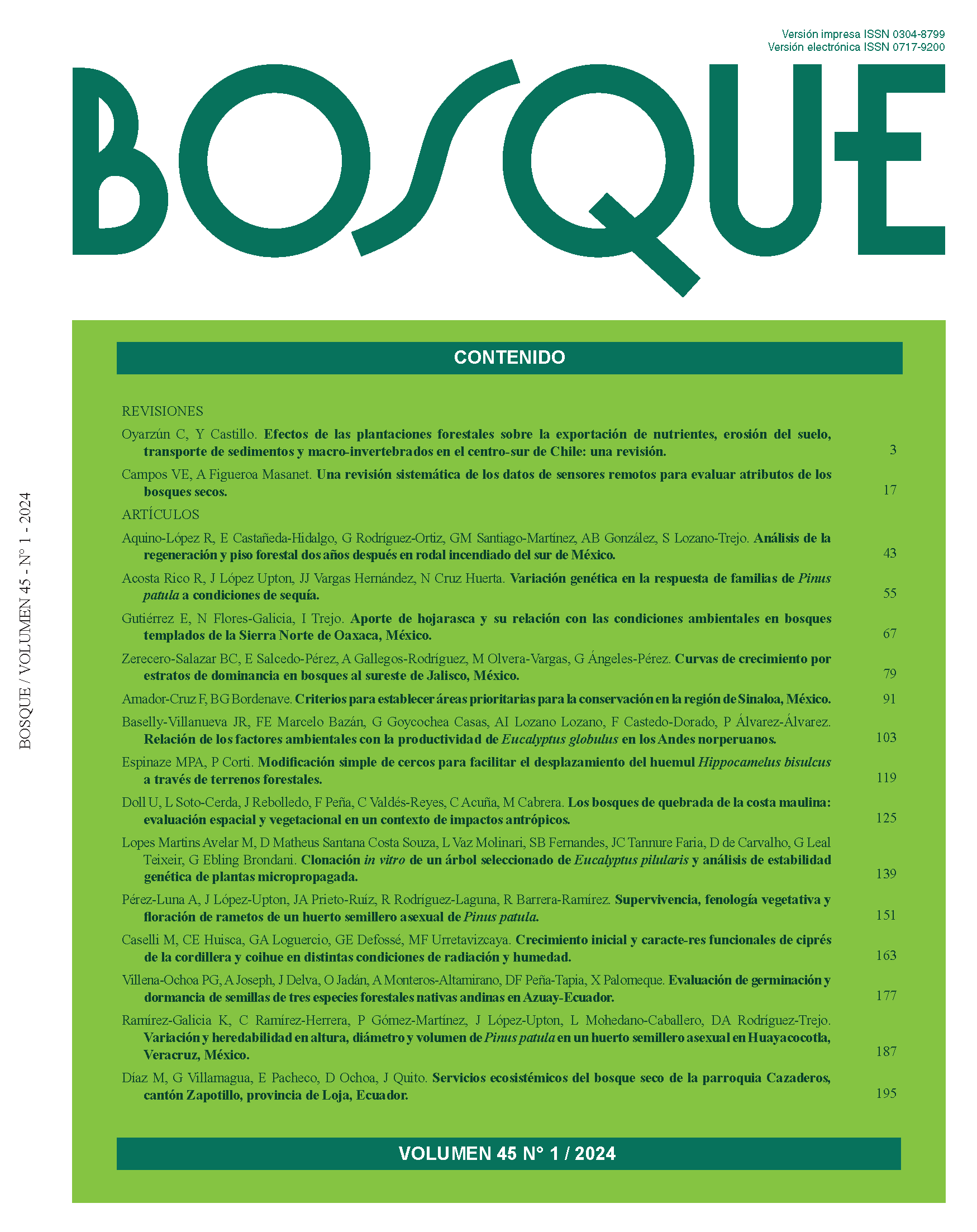Effects of the plantation forests on nutrient export, soil erosion, sediment transport and macro benthic invertebrates in the South-central Chile: a review
Main Article Content
Abstract
This is a review of studies related with the effects generated by the fast-growing exotic plantations (PECR) of Pinus radiata and Eucalyptus spp. on water quality of watersheds in south-central Chile, at different spatial and temporal scales. The analyzed data comes from a region between 36° - 40° S in the Central Valley and includes both mountain ranges, the Coastal and the Andes. Studies on the watershed’s capacity to export nutrients indicate that the conversion from native forests to forest plantations implies a net loss in nitrogen (N) and phosphorus (P) retention capacity. Consequently, watersheds with plantations coverage experience a net loss of these nutrients. Similarly, in watersheds dominated by Eucalyptus globulus, nitrogen retention decreases, especially NO3-N, and is partially reversed as a wider riparian vegetation is maintained. Studies of soil erosion and sediment transport losses show that clearcut harvesting has significant impacts on water quality, increasing sediment transport rates in streams. However, when soil conservation measures are practiced, erosion rates decrease significantly during forest harvesting. Some of the physical-chemical characteristics of the water, such as pH and temperature, are similar between streams with native forests and forest plantations. There is also a tendency for a decrease of richness and abundance of the macrobenthic invertebrates community due to the replacement of riparian vegetation by Eucalyptus spp.


 https://orcid.org/0000-0002-3084-7849
https://orcid.org/0000-0002-3084-7849